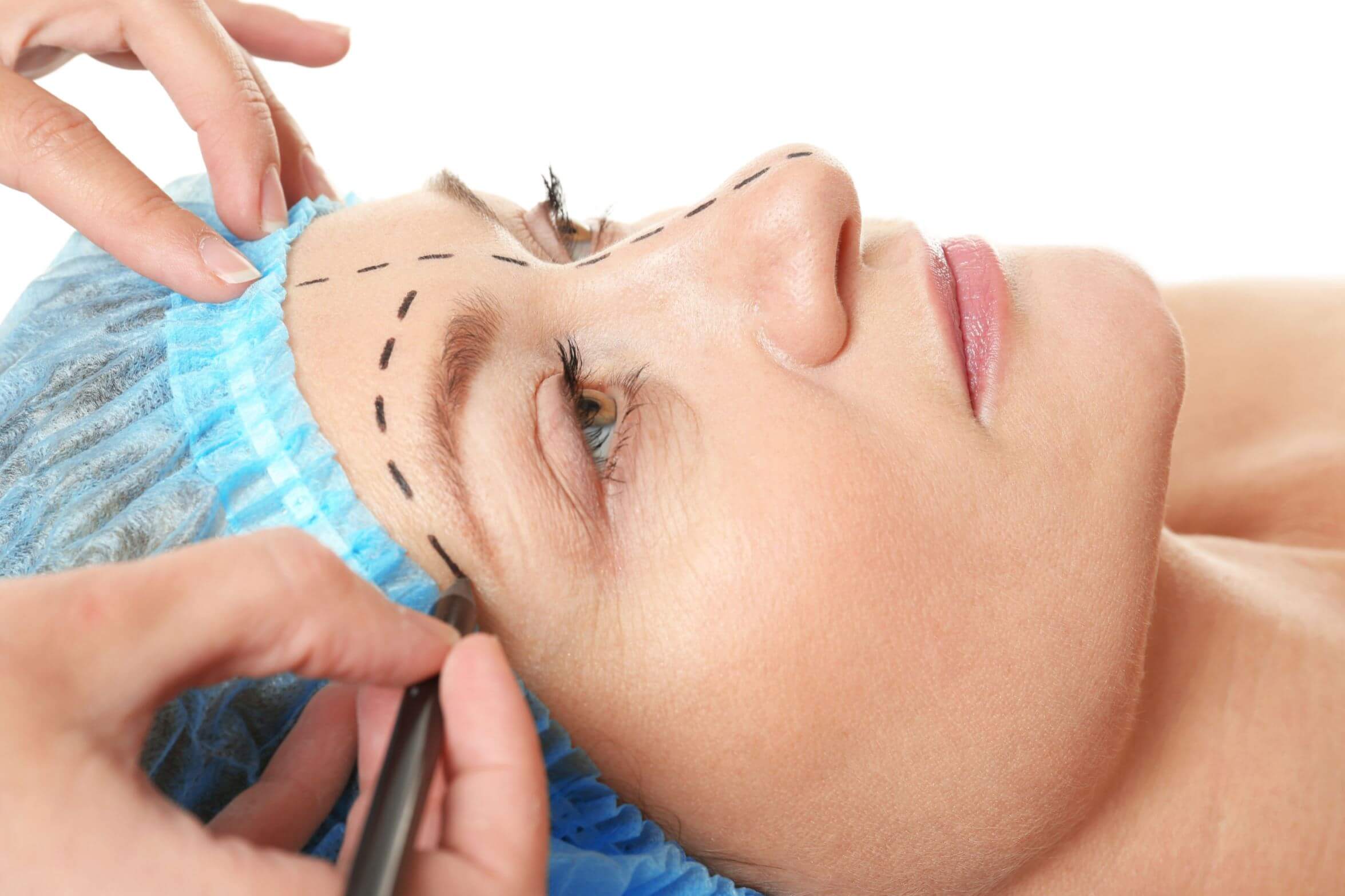Cosmetic Surgery Solicitors
Whilst the origins of cosmetic surgery date back as far as the 15th century, the practice has recently experienced a seismic rise in popularity.
Figures collated by the British Association of Aesthetic Plastic Surgeons show that, in 2022, over 31,000 cosmetic surgery procedures were performed in the UK alone. This figure relates only to invasive procedures such as breast augmentation and does not include non-invasive treatments like anti-wrinkle injections and dermal fillers.
Most cosmetic surgery procedures are performed correctly and achieve the desired results. However, things can sometimes go wrong, and an increase in cosmetic surgery claims has mirrored the rise in cosmetic surgery procedures. Issues range from the patient being dissatisfied with the results but otherwise unharmed to permanent disfigurement and blood clots.
If you have experienced complications due to your cosmetic procedure, you may be able to bring a cosmetic surgery compensation claim.
Is cosmetic surgery different to plastic surgery?
The terms ‘plastic surgery’ and ‘cosmetic surgery’ are often used interchangeably. There are, however, differences between the two. The primary purpose of plastic surgery is usually medical. It is used to repair or reconstruct damage resulting from, for example, congenital disabilities such as cleft lip or trauma caused by injuries like severe burns.
The primary purpose of cosmetic surgery, on the other hand, is aesthetic; to alter the way a patient looks. This procedure might be done by smoothing wrinkles with anti-wrinkle injections or dermal fillers or changing the shape of body parts such as the nose.
Plastic surgery is usually a medical or practical necessity, whereas cosmetic surgery is always elective.
Who can carry out cosmetic surgery procedures?
Cosmetic surgery is often used as a blanket term for any procedure to alter a patient’s appearance. However, cosmetic procedures can be categorised as either ‘cosmetic surgery’ or ‘non-surgical cosmetic surgery procedures’.
Cosmetic surgery procedures are highly specialist, and they must, by law, be carried out by qualified cosmetic surgeons regulated by the General Medical Council. All independent hospitals and clinics offering cosmetic surgery procedures are regulated by the Care Standards Act 2000 and undergo inspections by the Care Quality Commission. Examples of specialist cosmetic surgery procedures include breast augmentation, facelifts and nose reshaping.
Non-surgical cosmetic procedures are non-invasive i.e. they don’t involve introducing instruments into the body. Practitioners providing these cosmetic procedures do not need to be medically trained. For example, those working in fields such as hair and beauty now regularly offer them alongside their other services. Examples of non-surgical cosmetic procedures include dermal fillers, anti-wrinkle injections and chemical peels.
What are the most common causes of cosmetic surgery complications?
Complications can arise from cosmetic surgery procedures for many reasons. Some of the most common include:
- Your practitioner’s work was substandard.
- Defective products, such as faulty breast implants, were used.
- You did not receive the correct aftercare
- Insufficient regard was given to your medical history. For example, your practitioner used a substance you were known to be allergic to.
- Your clinician failed to make you aware of all of the risks involved in the procedure
What types of complications can arise from cosmetic surgery procedures?
The possible complications depend to some extent on the type of cosmetic surgery or procedure involved. They can range from mild discomfort and disappointment to severe pain and disfigurement.
Examples of the most common complications include:
- Unexpected results
- Infection
- Scarring
- Blood loss
- Nerve damage
- Foreign body granulomas – these most commonly occur after dermal fillers, where a patient’s tissue reacts to the substance used. The granuloma is often an unsightly red or purple mass.
What is the law relating to cosmetic surgery procedures?
Cosmetic surgery claims primarily fall under the law of negligence. To succeed in a cosmetic surgery negligence claim, you need to show the following:
- Your practitioner owed you a duty of care.
Generally speaking, anyone carrying out cosmetic surgery or non-surgical cosmetic procedures owes their patients a duty of care. That duty is to act with reasonable care and skill.
- They breached their duty.
Your claim will only succeed if the harm flowed from your practitioner’s failure to act with the requisite care and skill. If the damage would have occurred regardless of their actions, your claim will likely fail.
Examples of instances in which a practitioner may have breached their duty of care include where they recommended an inappropriate procedure or provided substandard treatment.
- You suffered injury as a result
The practitioner’s breach of duty must have resulted in harm. You may have sustained blood loss or scarring, or their actions might have caused disfigurement. It is worth remembering that you can claim for both physical and psychological injury. The extent of any psychological harm can often be considerable in the context of cosmetic surgery claims.
Can I bring a cosmetic surgery claim if I signed a consent form?
A very common type of cosmetic surgery claims is a failure by clinicians to make someone aware of all of the risks involved in a procedure.
You may still be able to bring a cosmetic surgery negligence claim if you signed a consent form. Cosmetic surgeons must comprehensively explain all risks and possible complications to you. They must also advise you of any alternative procedures that could achieve comparable results. If you can prove that, despite signing the consent form, you did not fully understand the risks and would not have agreed to the procedure had they been properly explained, you may be able to bring a claim.
Further, the existence of a signed consent form does not negate a practitioner’s duty to act with reasonable care and skill. The true impact of a consent form in any given case will hinge entirely on the individual circumstances.
Consent claims in some areas of clinical negligence can be tricky, as often the treatment may have been required for an urgent medical (including lifesaving reason). However, by its nature cosmetic surgery is always elective i.e., non-urgent surgery, that’s being performed, and Courts tend to be more willing to accept that if someone had been made fully aware of the risks they may not have gone ahead with the procedure
What are the time limits for bringing a cosmetic surgery claim?
Strict time limits apply to cosmetic surgery claims. Generally, you have three years from the date of the negligent act, or the date you became aware of it, to bring your claim.
If you miss the time limit, you cannot bring a claim. Accordingly, it is vital to seek legal advice as soon as you become aware of a potential issue with your cosmetic procedure.
What damages will I receive if my cosmetic surgery claim is successful?
We cannot accurately predict the level of damages in any personal injury action, including cosmetic surgery claims until we have reviewed the evidence. The appropriate compensation will depend entirely on the nature and extent of the harm caused and its impact. Even identical injuries can sometimes have a far more profound effect on one victim’s life than another’s, and damages must be assessed accordingly.
We can, however, explain the types of damages that will be awarded. Compensation in personal injury claims is broken down into two types. The first is known as ‘general damages’. General damages are intended to compensate for pain, suffering and loss of amenities.
The second is known as ‘special damages’. Special damages aim to make good any financial loss.
Special damages are usually easier to assess than general ones since they are more readily identifiable. They can include loss of earnings, medical expenses and travel costs.
When awarding general damages, a Judge must make a value judgment based on the nature of the injury and their assessment of the extent of the harm caused to the victim. This often requires consideration of extensive expert evidence and witness testimony.
Legal Guidelines have been developed to give Judges an idea of the range of general damages appropriate to specific injuries. You can use our compensation calculator to get a feel for the level of compensation that might apply in your case. Bear in mind, however, that the amount awarded will depend entirely on your individual circumstances.
How do I start the process for a cosmetic surgery claim?
The cosmetic surgery claims process is subject to strict Pre-action Protocols, under which the parties must exchange all relevant evidence at an early stage. As a result, very few cosmetic surgery claims reach trial. Most practitioners try to avoid a contested hearing when the evidence against them is convincing. So, whilst they or their insurers may initially dispute liability, most will make a settlement offer before trial.
Before commencing a cosmetic surgery negligence claim, it is advisable to take the steps set out below. Remember that cosmetic surgery claims, like all medical negligence claims, are subject to a strict three-year time limit. So, if the time limit is close to expiring, you must take immediate legal advice.
- Seek medical advice where appropriate. Even trivial injuries can be more serious than they appear or worsen over time, so early medical intervention is crucial.
- Make a complaint to the practitioner, clinic or hospital and ask them to perform any remedial procedure to minimise harm.
- Once you have addressed the immediate aftermath, you should gather all relevant evidence. Contemporaneous evidence is invaluable and will greatly assist us in building your case.
The types of evidence that can help include:
- Your account of what happened before, during and after the cosmetic procedure. Our memories can fade over time, so making a note of the relevant events when they are fresh in your mind is vital.
- A diary of any pain or other complications.
- Photographs of the affected areas.
- Dates and details of any medical appointments
- Medical reports.
- Witness evidence.
- Details of financial losses. This may include receipts for travelling to and from medical appointments, medical costs and loss of earnings.
If you cannot obtain the evidence listed above, don’t worry. Our solicitors will work hard to gather all evidence that may assist your case.
- The next step is to contact our experienced cosmetic surgery solicitors. We will assess the evidence, consider the merits of your cosmetic surgery negligence claim and advise on the best course of action.
Mooneerams solicitors work with some of the country’s best specialist medical negligence lawyers.
We work closely with our trusted partners to achieve the optimum result for you in your clinical negligence claim.
Our experienced clinical negligence partners usually work on a no-win, no-fee basis, with excellent results for our clients who have received negligent cosmetic surgery.
Please call Mooneerams on 029 2199 1927 if you believe you have received negligent cosmetic surgery and wish to discuss the possibility of bringing a claim for cosmetic surgery negligence against those responsible for the botched surgery.





















